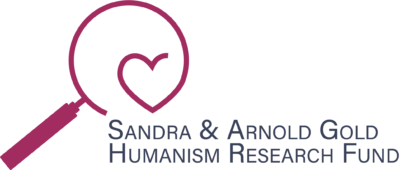
Rutgers Biomedical and Health Sciences
Expanding Peer Support Approaches to Bolster Resident Physician Well-Being during the COVID-19 Era and Beyond
The on-going COVID-19 pandemic has significant emotional impact on the healthcare workforce, which can negatively affect the clinical care provided to people in our community. Many health professionals experienced significant burnout even prior to the pandemic.
Beginning September 2020, with support from the Healthcare Foundation of New Jersey (HFNJ) we piloted an evidence-based, worksite-based, peer support program for faculty physicians at Rutgers New Jersey Medical School (NJMS) and Robert Wood Johnson Medical School (RWJMS) to support their well-being and consequently their ability to provide excellent patient-centered care during this crisis and beyond. Three methods were offered and described as such:
Method 1: CIRCLE Peer Talk Discussion Groups
CIRCLE stands for: Colleague Involved in Reaching Colleagues through Listening and Empathy
Twice monthly for 6 months, longitudinal confidential group meetings (synchronous face-to-face or virtual), composed of 5-8 physicians will take place to discuss a curriculum of pre-determined topics including: meaning in medicine, mindfulness, good and difficult patient encounters, adverse outcomes, what is under one’s control, burnout and resilience. These are approved for 12 hours of Continuing Medical Education (CME).
Method 2: CIRCLE Text Peer Discussion Groups
CIRCLE stands for: Colleague Involved in Reaching Colleagues through Listening and Empathy
Twice monthly for 6 months, novel longitudinal confidential peer support groups composed of 5-8 physicians will take place using asynchronous text messaging on a secure encrypted platform to discuss the same evidence-based topics as method 1, also approved for 12 hours of CME.
Method 3: ONE 2 ONE 2 CARE peer support
CARE stands for: Colleagues Aligning to Respond with Empathy
A group of physicians in each medical school were recommended, agreed to serve and were trained in peer support techniques. They will provide confidential preventive support on-site at work and also offer one-on-one support for distressed physicians after emotionally difficult clinical situations. After training, peer-supporters will attend monthly meetings to maintain program quality and support for themselves (CME approved).
The Sandra and Arnold Gold Humanism Research Fund will provide:
Expansion of the Peer Support Program to Residents
For this pilot project we will invite approximately 200 residents from 3 internal medicine residencies from the Rutgers Biomedical and Health Sciences system of residency programs.
This grant will include piloting CIRCLE Peer Talk and CIRCLE Peer Text Groups with residents every other week for 6 months with discussion topics adapted to the residents’ professional stage. A resident ONE 2 ONE 2 CARE program will be developed and approximately 12 resident peer-supporters will be trained so that they can provide one-to-one real-time work-site based and scheduled peer support.
An IRB-approved evaluation will be conducted, including utilization of the program, and well-being measures using short questionnaires and focus groups, analyzed with quantitative and qualitative methods respectively.
Extension of the Evaluation of the Physician Peer Support Program
Funding from the Sandra and Arnold Gold Humanism Research Fund will allow one more evaluation 6 months after the end of the faculty physician program to assess long-term effects of the program and its integration into the culture of the medical schools.
- Tracking of physicians who continue CIRCLE groups and utilization of peer-supporters.
- Focus group and individual interviews of CIRCLE group participants and peer-supporters about their group experience in context of COVID-19.
- Survey questions to follow professional fulfillment and burnout during COVID-19
Development of a Well-being Website/Webpage for Faculty and Residents
A website will be developed to house a repository of well-being resources including the peer support initiatives, materials for CIRCLE Peer Discussion Groups, and information about the Peer-Supporter program. There will be links to resources such as mindfulness and enhancing resilience. Healthcare providers will have the information, tools, and technical support needed to maintain and enhance personal and professional health and well-being.
